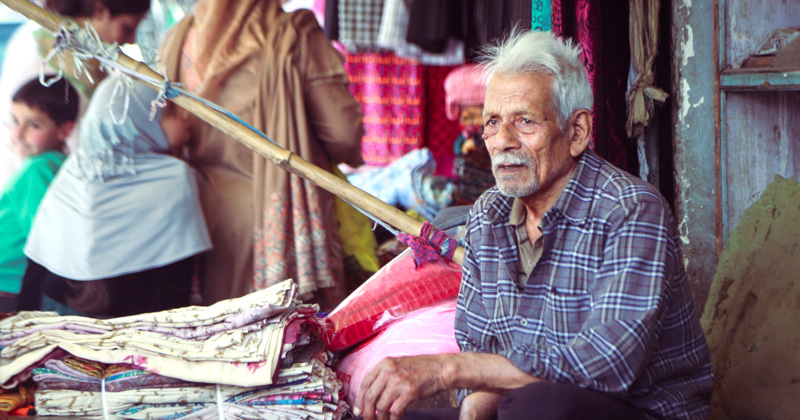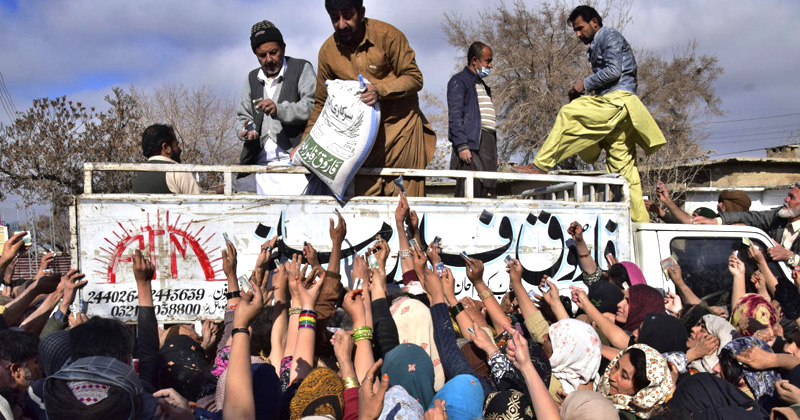Under the burden of hundreds of billions of dollars in foreign loans, primarily from China, the world's largest and least forgiving government lender, around twelve impoverished countries are grappling with economic instability and the looming threat of collapse.
An examination conducted by the Associated Press, focusing on twelve countries heavily indebted to China, such as Pakistan, Kenya, Zambia, Laos, and Mongolia, reveals that the repayment of this debt is increasingly consuming a larger portion of their tax revenue. This situation poses significant challenges in maintaining essential services such as education, electricity provision, and food and fuel subsidies. Moreover, it depletes the foreign currency reserves required to fulfill interest payments on these loans, leaving some nations with only a few months before running out of funds.
Complicating matters is China's reluctance to forgive debt and its secretive approach to disclosing the amount and terms of its loans, hindering other major lenders from providing assistance. Additionally, it has been discovered that borrowers have been coerced into depositing funds into undisclosed escrow accounts, favoring China as the primary creditor to be repaid.
As per the AP's analysis, several countries examined had up to 50% of their foreign loans originating from China, and a majority of them were allocating over one-third of their government revenue to service foreign debt. Distressingly, Zambia and Sri Lanka have already defaulted on their loans, rendering them incapable of even making interest payments on debts incurred for the construction of ports, mines, and power plants.
In Pakistan, the country's excessive foreign debt has resulted in the termination of employment for millions of textile workers, as the government struggles to maintain a stable electricity supply and keep industrial machinery operational.
In Kenya, the government has delayed salary payments to numerous civil servants in an effort to save funds for servicing foreign loans. Last month, the president's chief economic adviser expressed the dilemma by tweeting, "Salaries or default? Take your pick."
Following Sri Lanka's default a year ago, the repercussions have been severe, resulting in the disappearance of around half a million industrial jobs, soaring inflation exceeding 50%, and a significant increase in poverty levels affecting more than half the population in various regions of the country.

Experts are warning that unless China adopts a more lenient approach towards its loans to impoverished nations, a wave of additional defaults and subsequent political disruptions may unfold.
"In many parts of the world, the clock has struck midnight," stated economist Ken Rogoff from Harvard University. He further emphasized that China's involvement has contributed to geopolitical instability, which could have enduring consequences.
A Case Study Illustrating the Unfolding of Events in Zambia
In Zambia, a landlocked country in Southern Africa, a case study unfolds revealing the utilization of billions in loans from Chinese state-owned banks for infrastructure development over the past two decades.
Chinese loans from state-owned banks have contributed to economic growth but led to increased foreign interest payments. This has resulted in reduced funding for healthcare, social services, and agricultural subsidies.
Unlike other major lenders, China negotiated separately with Zambia, refusing to participate in multinational discussions and insisting on confidentiality. In 2020, Zambia defaulted on its loans, leading to inflation, high unemployment, and a depreciated currency. The country owes $6.6 billion to Chinese banks, double the previous estimates, constituting one-third of its overall debt.
The situation has exacerbated poverty, with millions of Zambians suffering from inadequate food supply. Limited information about the loans has raised concerns about the true extent of the crisis.

China's Refusal to Absorb Losses Traps Nations in Debt Cycle
Despite urging from the International Monetary Fund (IMF) and World Bank, China's refusal to accept losses on debts owed to them has trapped several countries in a cycle of debt repayment, hampering economic growth and leading to declines in foreign cash reserves.
Many countries are left with limited reserves to cover essential imports, causing contraction in their economies, surges in inflation, and unaffordability of basic items like food and fuel. The situation has resulted in increased poverty, unemployment, and widespread hunger.
Unforeseen events such as the war in Ukraine and interest rate hikes by the U.S. Federal Reserve have worsened the situation. These challenges are causing domestic political turmoil and disrupting strategic alliances. Some countries, like Honduras and Pakistan, have made diplomatic shifts and deals with China and Russia to alleviate their immediate problems, undermining previous alliances and agreements. Sri Lanka has also experienced violent protests due to burdensome agreements with China.
China exhibits a stringent approach as a lender
The Chinese Ministry of Foreign Affairs has rejected the notion that China acts as an inflexible lender and instead places the responsibility on the Federal Reserve.
China argues that it has already implemented relief measures, such as extending loan maturities and providing emergency loans, while also claiming to have forgiven some interest-free loans to African countries. However, experts suggest that Chinese lending lacks coordination and a deliberate strategy.
Recent discussions in Washington revealed that China considered abandoning its demand for loan forgiveness from the IMF and World Bank in exchange for commitments from these institutions to provide grants and assistance to distressed countries. No formal announcement has been made regarding this matter, leading to frustration from both lenders toward Beijing.
While the IMF and World Bank argue that forgiving their loans would deviate from the traditional approach to addressing sovereign crises, Chinese banks face challenges of their own and are not absorbing losses primarily due to unfavorable timing and economic impacts within China.
China’s hidden debt
Ap’s decade-long efforts, brought to light China's concealed debt. Many developing countries eagerly accepted Chinese loans for infrastructure development, only to find themselves burdened with substantial debt.
The investigation revealed that China even resorted to establishing offshore shell companies to hide the true extent of indebtedness. China's undisclosed loans amounted to at least $385 billion across 88 countries. These loans caused significant financial challenges for many nations.
Some projects funded by China were economically unviable and plagued with issues. For example, an airport funded by China in Sri Lanka remains vastly underutilized, and hydroelectric plants in Uganda and Ecuador show signs of deterioration. Parks' work shed light on the hidden costs and risks associated with China's lending practices.
Gaining priority access
The investigation also discovered that China had inserted clauses in loan agreements requiring borrowing nations to deposit foreign currency into covert escrow accounts. These accounts allowed China to access the funds if the countries failed to make interest payments on their loans, giving China privileged repayment status over other lenders.
One such account in Uganda, sparked a legislative investigation and criticism of the finance minister. The existence of these accounts caused unease among non-Chinese lenders, hindering negotiations and creating a sense of distrust. Other creditors were reluctant to provide concessions if China is given repayment priority, leading to a state of paralysis and mistrust among lenders.
Foreign currency exchanges
Ap’s reoprted Parks also uncovered a new method employed by China's central bank involving significant lending through foreign currency swaps.
Unlike traditional swaps used for short-term liquidity, China's swaps extend over several years with higher interest rates. These swaps do not appear as loans on a country's balance sheet, allowing China to avoid increasing the country's overall debt burden.
Mongolia, Pakistan, and Laos have utilized billions of dollars in these swaps, adding to their existing debt. While the swaps provide temporary relief, they contribute to the growing debt burden and resemble the risky lending practices preceding the 2009 financial crisis.
-based on an investigative report by Associated Press